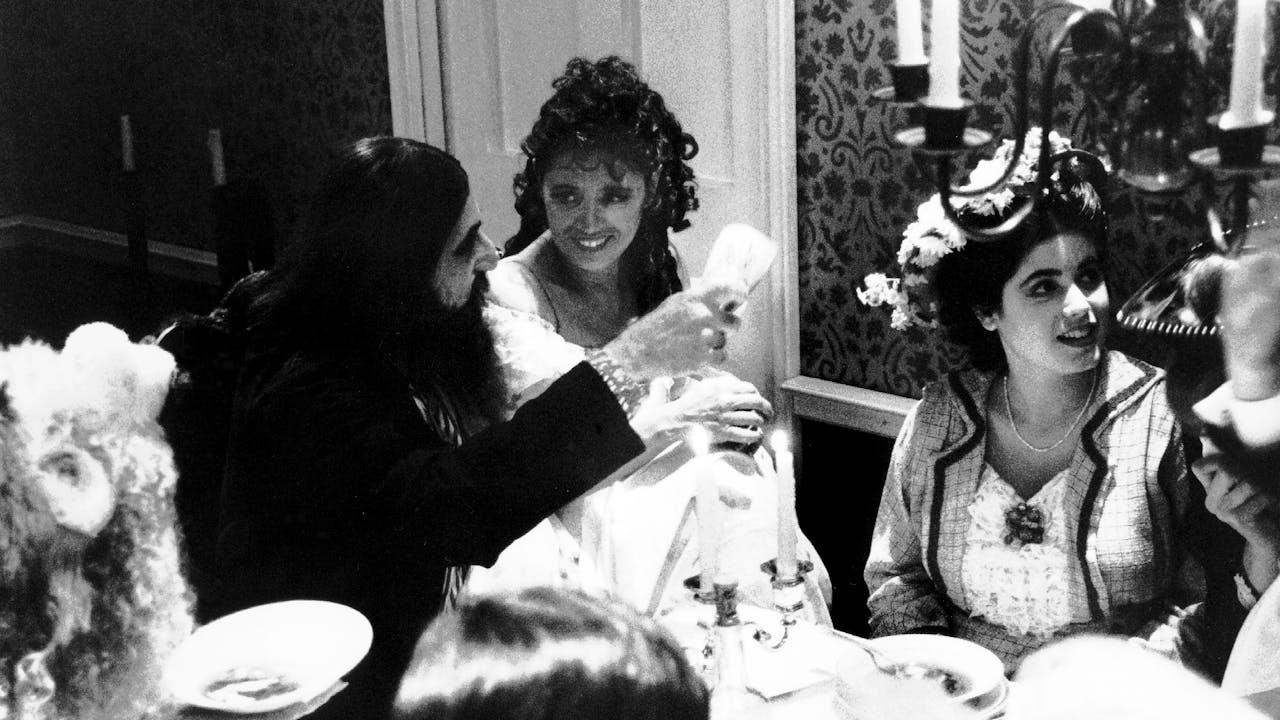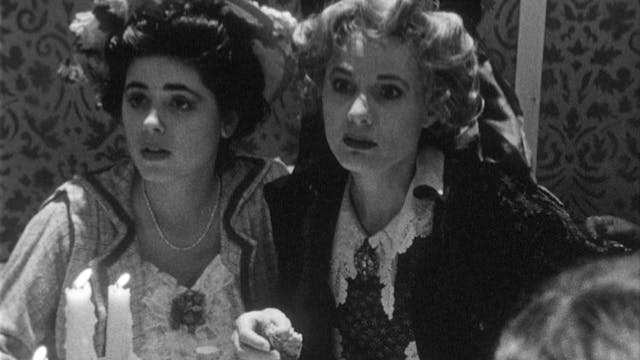The Last Night of Rasputin
This is the rediscovered film made in 1924 by the legendary Soviet silent film director, Yevgeny Antinov. "Despised by the modernists for his love of narrative, hated by the traditionalists for his modern techniques, disapproved of by the government for his self-indulgence and individualism, and ignored by their lackey scholars, he was loved only by the people." Along with his wife, the great African-American ballerina Eleanora Antinova, they created films that shocked the nation!
In other words, this film, its director and its star could only originate from the seductive world of famed modern artist Eleanor Antin! Beloved by audiences, scholars, and critics, Antin has had a art career spanning four decades that is almost as legendary and far more real than her alter-ego, Antinov.
Billed as "the final orgy and dreadful end of the notorious monk, Rasputin, on the eve of the Russian Revolution," THE LAST NIGHT OF RASPUTIN tells a story of pre-revolutionary Russia. Rasputin, confidante of the Tsarina, storms through St. Petersburg in endless orgies and bachannales. Into the aristocratic decadence come three friends from the productive classes - a worker, a student and a ballerina. The troika fall victim to evil doers but heroically triumph in the end.
Antin's film with intertitles and music, employs acting and film techniques that simulate a silent film supposedly produced in the Soviet Union in 1924 at the start of the Soviet film renaissance. Poetic, surprising and hilarious, Antin's beautifully shot and lit film is a joy to watch.
“Mayhem, murder, kidnapping, sex, and even cigarette smoking run riot through the film!” - Grace Glueck, New York Times
-
Last Night of Rasputin, The
This is the rediscovered film made in 1924 by the legendary Soviet silent film director, Yevgeny Antinov. "Despised by the modernists for his love of narrative, hated by the traditionalists for his modern techniques, disapproved of by the government for his self-indulgence and individualism, and ...

